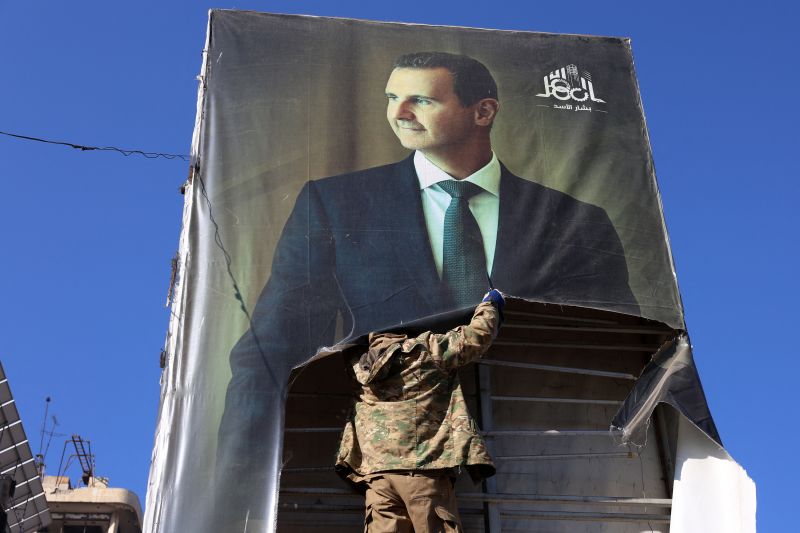
Assad’s Illusionary Control of Syria Crumbles as Russia, Iran, and Hezbollah Drop their Guard
In the realm of international relations and foreign policy, alliances are fragile constructs that can shift in a moment’s notice. The illusion of power and stability can often shatter, revealing the underlying complexities of geopolitical relationships. Such is the case with the situation in Syria, where the purported grip of President Bashar al-Assad on the country is being challenged by the actions of his key allies – Russia, Iran, and Hezbollah.
Over the past decade, the Syrian conflict has evolved into a multi-faceted geopolitical puzzle, with various global and regional powers vying for influence and control. Russia, Iran, and Hezbollah have been staunch supporters of the Assad regime, providing military aid, political backing, and strategic guidance. Their support has been instrumental in propping up the Assad government and preserving its hold on power.
However, recent developments have exposed cracks in this united front. The decision by Russia to significantly reduce its military presence in Syria and withdraw some of its forces has raised eyebrows and fueled speculation about Moscow’s long-term intentions. While Russia has cited the defeat of ISIS and the stabilization of Syria as reasons for its scaled-back military presence, some experts believe that this move could signify a shift in Russia’s priorities and a reevaluation of its commitment to Assad.
Iran, another key ally of the Assad regime, has also faced challenges in maintaining its influence in Syria. Tehran’s significant investment in the Syrian conflict, both in terms of resources and personnel, has strained its economy and raised concerns among the Iranian populace. The growing pressure from international sanctions and domestic unrest have forced Iran to reassess its involvement in Syria and prioritize its own national interests.
Hezbollah, the Lebanese militant group that has fought alongside the Assad regime in Syria, is facing similar challenges. The group’s military involvement in Syria has strained its resources and diverted its attention from its primary mission in Lebanon. As Hezbollah grapples with internal dissent and external pressures, its ability to continue supporting Assad may be called into question.
The shifting dynamics in Syria have revealed the fragility of alliances in the face of changing circumstances. The illusion of Assad’s firm grip on power, propped up by his allies, has been shattered by the complex interplay of geopolitical forces and national interests. While Russia, Iran, and Hezbollah have been instrumental in sustaining the Assad regime, their recent actions suggest a reevaluation of their commitments and a possible recalibration of their strategies in Syria.
As the situation in Syria continues to evolve, the fate of the Assad regime hangs in the balance. The disillusionment of Assad’s allies, coupled with the challenges posed by internal and external pressures, may signal a turning point in the Syrian conflict. Whether Assad can weather this storm and maintain his grip on power remains to be seen, but one thing is clear – the illusion of stability in Syria has been shattered, revealing the intricate web of relationships and rivalries that define the geopolitics of the region.
